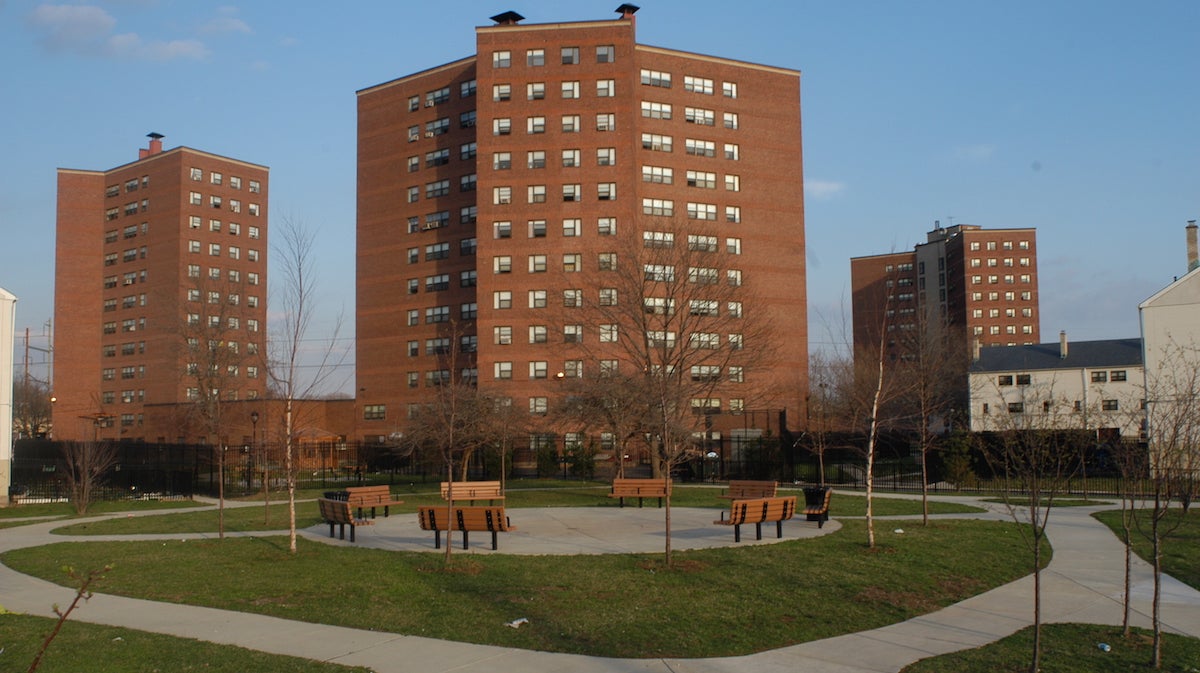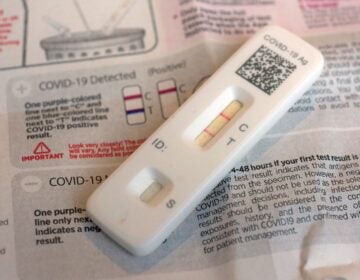Smoking ban in public housing cleans up air, sets Philly as national model

Wilson Park was one of the study sites. (photo via PHA)
The federal Department of Housing and Urban Development has ordered all public housing authorities to ban smoking by 2018. Well ahead of the curve, the Philadelphia Housing Authority prohibited smoking in its properties in 2015.
A new study documents some recent success by the Philadelphia Housing Authority, the largest agency in the country to have banned smoking in all its properties. For the study, published in Tobacco Regulatory Science, researchers monitored the nicotine levels in PHA homes before — and after — the smoke-free policy went into effect.
Drexel University public health professor Ann Klassen, who led the study, found that although the number of places where nicotine was detected remained unchanged, the levels of detected nicotine were reduced by almost half.
“We believe that the amount of airborne nicotine, while still detectable, goes down quite a bit once people smoke less in the property,” she said. “We believe that the new policy both supported nonsmoking homes but also reminded people not to walk through a lobby or an elevator with a lit cigarette.”
Klassen and her team monitored levels of secondhand smoke through monitors at four sites, including high-rise apartment buildings and rowhomes. The lower nicotine levels are good for everyone, she said.
“It’s less harmful for people with asthma, with heart disease, for children with respiratory illness,” Klassen said. “So that we know that everyone is breathing cleaner air when nicotine is less common.”
Before the new policy, smoking was banned in public areas, but it was allowed inside individual PHA units. However, secondhand smoke often drifted into hallways, laundry rooms and other commons spaces.
WHYY is your source for fact-based, in-depth journalism and information. As a nonprofit organization, we rely on financial support from readers like you. Please give today.




